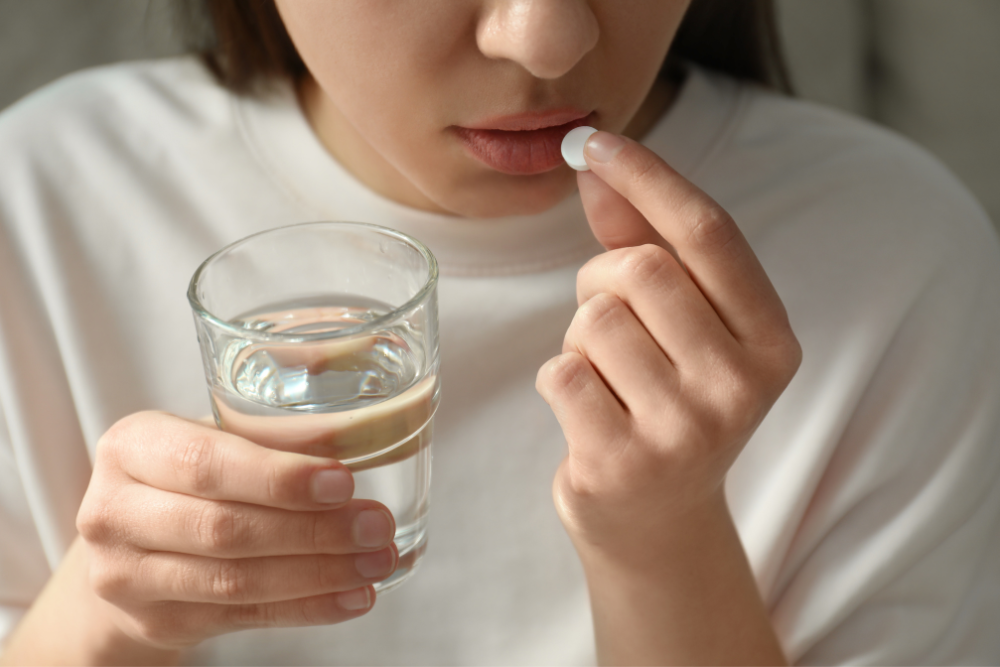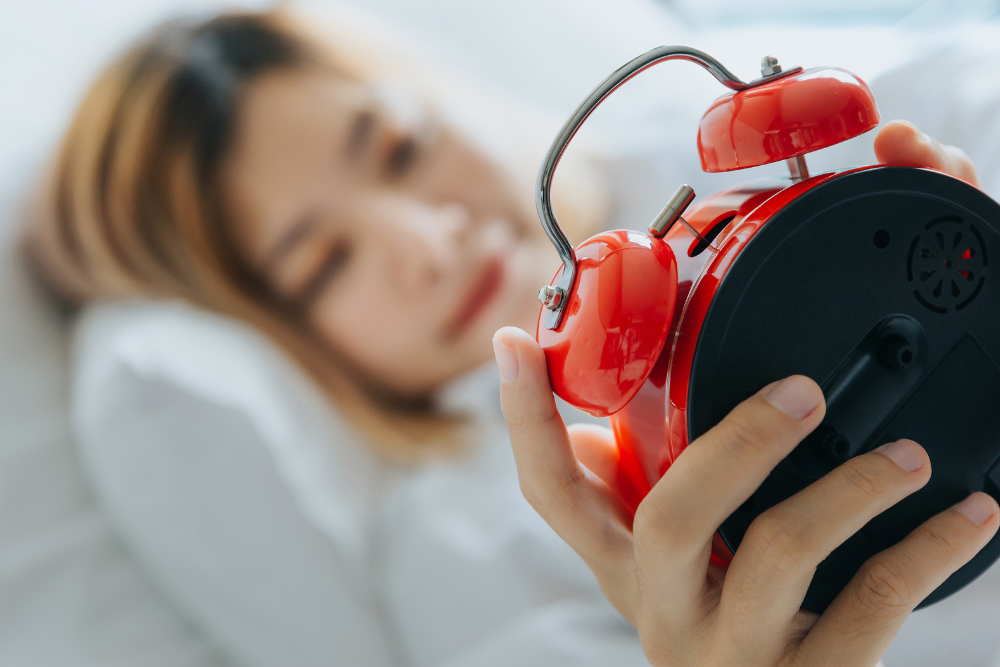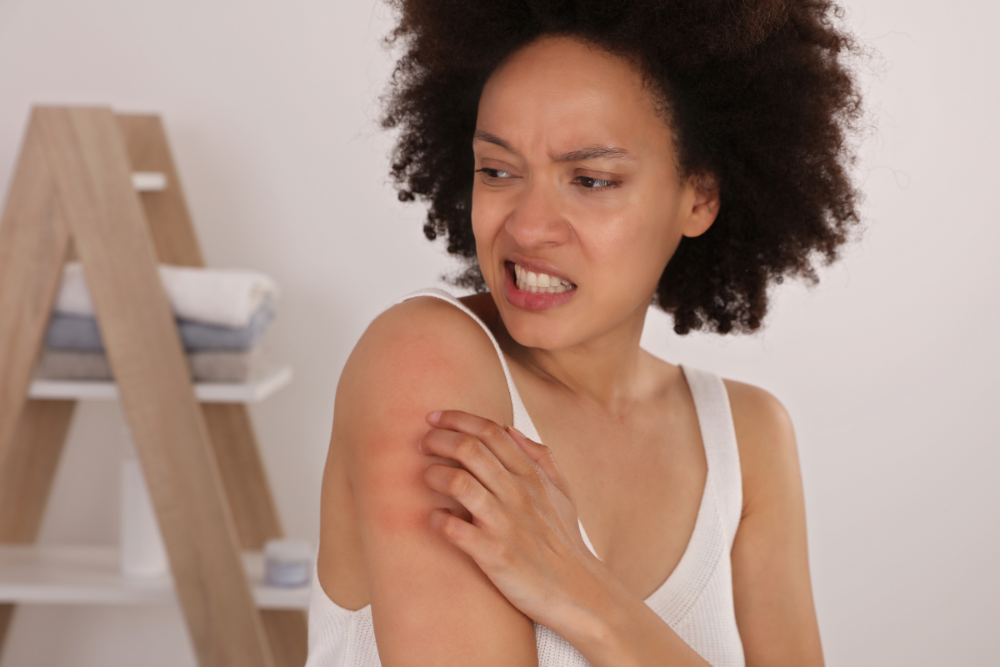Are you wondering how long it takes for thrush tablets to work their magic? You’re not alone! Thrush, a common yet bothersome yeast infection, can disrupt your daily life with its uncomfortable symptoms. Thankfully, the solution could be just a tablet away.
In this guide, we dive into the world of thrush tablets, exploring their effectiveness and how quickly you can expect relief. Whether you’re a first-time sufferer or a seasoned warrior in the battle against thrush, understanding the treatment timeline is helpful. So, let’s get started and find out how soon you can wave goodbye to those pesky thrush symptoms and welcome comfort back into your life!
What is Thrush? Understanding the Basics of Yeast Infection
If you’ve ever experienced a white, cottage cheese-like discharge, itching, or discomfort in your intimate areas, you might be familiar with thrush. But what exactly is this common condition? Let’s break it down in simple terms.
Thrush is a yeast infection primarily caused by the fungus Candida albicans. Although the word ‘fungus’ might sound alarming, Candida is a normal resident in the body, living in places like the mouth, throat, gut, and vagina. It usually exists in harmony with the body without causing issues. However, when the balance is disturbed, Candida can overgrow, leading to a fungal infection – that’s thrush.
Why does this balance get disrupted? There are several factors, including antibiotic usage, hormonal changes (like those during menopause and pregnancy), weakened immune systems, and certain lifestyle choices. It’s a common misconception that fungal infections like thrush are always a sign of poor hygiene or a sexually transmitted infection, but in reality, they can affect anyone.
Thrush is characterised by a few key symptoms: itching and irritation in the affected area, redness and swelling, and sometimes, a thick, white discharge. If you’re wondering, “Can men get thrush?”, we’re here to confirm that men can indeed get thrush, typically presenting as redness and irritation on the penis. Men and women can also get a yeast infection in the mouth, known as oral thrush.
Understanding thrush infection is the first step in effectively treating and preventing it. It’s a common condition and, in most cases, easily treatable with the right approach. So, if you suspect you might have thrush, don’t worry – help is at hand.

Thrush Tablets Explained: How Do They Work?
When it comes to tackling thrush, tablets are often a go-to solution. But how exactly do thrush tablets work to combat this uncomfortable condition?
Thrush tablets work by targeting the root cause of the infection: the overgrowth of the yeast-like fungus, Candida. These tablets contain antifungal agents, which are specifically designed to stop the growth of this fungus. How do they do that? By interfering with the ability of the fungus cells to maintain their cell walls. When the cell walls are compromised, the fungus can’t survive or replicate, effectively nipping the infection in the bud.
What makes thrush tablets a preferred choice for many is their convenience and effectiveness. Taken orally, these tablets are systemic treatments, meaning they work throughout the body. This is particularly useful for treating thrush because it can target the infection wherever it may be in the body, not just where the symptoms are most noticeable
It’s important to note that while thrush tablets are effective, they are not an instant fix. It may take a few days for the symptoms to start improving, and it’s essential to complete the entire course of treatment to ensure the infection is fully cleared.
Remember, thrush tablets are generally considered safe and effective, but they’re not suitable for everyone. Before starting any new medication, it’s always a good idea to consult with a healthcare professional, especially if you have ongoing medical conditions or are taking other medications.

How Long Before Thrush Tablets Show Results?
When you’re dealing with the discomfort of thrush, knowing how long it will take for thrush tablets to work becomes a top priority. The effectiveness of thrush tablets is not just about their ability to treat the infection, but also how quickly they can provide relief from the annoying symptoms. So, let’s talk about the timeline for thrush tablet treatment and what you can expect.
Generally, the active ingredients in thrush tablets start working right away to combat yeast overgrowth. However, immediate relief from symptoms isn’t typical. Most individuals begin to notice an improvement in symptoms within one to three days after starting the treatment. This is when you might start experiencing less itching, reduced redness, and a decrease in uncomfortable discharge.
The complete resolution of symptoms can take up to a week or slightly longer in some cases. This duration can vary depending on the severity of the infection and individual responses to the treatment. It’s important to complete the full course of treatment as prescribed, even if symptoms seem to improve quickly. Stopping treatment early can lead to a recurrence of the infection.
While thrush tablets are effective for many, they are not a one-size-fits-all solution. If you don’t see any improvement in your symptoms after a few days, or if your symptoms worsen, consult a healthcare professional. They might suggest a different course of treatment or investigate another underlying cause for your symptoms.

Maximising Effectiveness: Tips for Using Thrush Tablets
To get the most out of your thrush treatment, it’s not just about taking the tablets; it’s also about how you take them and what else you do during the treatment period. Here are some key tips to help you maximise the effectiveness of thrush tablets and promote a quicker, more comfortable recovery:
Follow the Prescribed Course
Always take the thrush tablets exactly as prescribed by your healthcare provider. This includes the dosage and the duration of the treatment. Even if symptoms disappear, completing the full course helps ensure the infection is thoroughly treated.
Maintain Good Hygiene
While thrush isn’t caused by poor hygiene, maintaining good genital hygiene can help alleviate symptoms and prevent further irritation. Avoid using scented soaps or shower gels, and opt for gentle, unscented products instead.
Wear Breathable Clothing
Tight, synthetic clothing can create a warm, moist environment that yeast thrives in. Choose loose-fitting, breathable fabrics like cotton to help keep the area dry and prevent the growth of yeast.
Consider Dietary Changes
Some evidence suggests that reducing sugar and yeast in your diet can help combat thrush, as yeast feeds on sugar. Incorporating probiotics, like those found in yoghurt, might also be beneficial.
Avoid Irritants
Steer clear of products that can irritate the affected area, such as scented sanitary products, douches, or harsh laundry detergents.
Stay Consistent with Treatment
If you’re prescribed a course of treatment, take it at the same time each day to maintain consistent levels of the medication in your body.
Check for Drug Interactions
Some medications can interact with thrush tablets, so it’s important to inform your healthcare provider about all the medications and supplements you’re taking.
Monitor for Side Effects
While side effects are generally rare, be aware of any adverse reactions and contact your healthcare provider if you have concerns.
Seek Medical Advice for Recurrent Fungal Infections
If you experience recurrent episodes of thrush, it’s important to seek medical advice. There may be underlying factors that need to be addressed.
Be Patient and Stay Informed
Understanding that treatment takes time and keeping informed about your condition can help manage expectations and reduce anxiety.
By following these tips, you can help ensure that you’re using thrush tablets in the most effective way possible, paving the way for a quicker recovery and reducing the likelihood of recurrence.

Side Effects of Thrush Tablets: What You Need to Know
While thrush tablets are generally safe and effective for most people, like any medication, they can have side effects. Being aware of these potential side effects can help you use the medication more safely and know when it’s necessary to seek medical advice. Here’s what you need to know about the side effects of thrush tablets:
Gastrointestinal Issues
Some people may experience gastrointestinal side effects like nausea, vomiting, diarrhoea, or abdominal pain. These symptoms are usually mild and often resolve as your body adjusts to the medication.
Skin Reactions
In rare cases, allergic reactions can occur, manifesting as rashes, itching, or hives. If you notice any skin changes after taking thrush tablets, it’s important to contact a healthcare provider.
Headaches
A small number of users may experience headaches as a side effect of the medication. Drinking plenty of water and resting may help alleviate this.
Altered Taste Sensation
Some individuals may notice a change in their sense of taste while taking thrush tablets, although this is uncommon.
Dizziness or Fatigue
Experiencing dizziness or feeling unusually tired can occur in some cases. If these symptoms affect your ability to perform daily tasks, speak with a healthcare professional.
Liver Function
On very rare occasions, thrush tablets can affect liver function. If you experience symptoms like yellowing of the skin or eyes, dark urine, or severe fatigue, seek medical attention immediately.
Drug Interactions
Thrush tablets can interact with other medications, potentially leading to increased side effects or reduced effectiveness. Always inform your healthcare provider about all medications and supplements you are taking.
It’s important to note that not everyone will experience side effects, and when they do occur, they are often mild and temporary. However, if you experience severe, persistent, or worrying symptoms, contact a healthcare provider. They can provide guidance on whether you should continue the medication or consider alternative treatments.

When to See a Doctor: Thrush Tablet Effectiveness and Concerns
Knowing when to consult a doctor during thrush treatment is essential for your health and peace of mind. If you’re taking thrush tablets but don’t see any improvement in your symptoms after a few days, it’s time to seek medical advice. Also, if symptoms worsen or if you experience severe side effects like allergic reactions, skin rashes, or severe gastrointestinal discomfort, immediate medical attention is necessary.
It’s equally important to consult a doctor if you have recurrent thrush infections, as this could indicate an underlying health issue. A healthcare professional can offer guidance on alternative treatments, address any ongoing concerns, and provide a comprehensive approach to managing your condition. This guidance is key for those unsure about the effectiveness of their current treatment or experiencing unusual symptoms, ensuring they seek timely and appropriate medical care.




